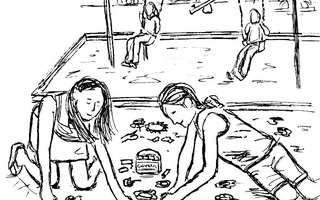Universities took special notice when, in his inaugural address, President Obama called on all citizens to commit to a cause greater than themselves. The president observed that the price of freedom is “a recognition, on the part of every American, that we have duties to ourselves, our nation, and the world; duties that we do not grudgingly accept but rather seize gladly.”
Americans of my generation heeded a similar call to service from President John F. Kennedy ’40. When I graduated from college in 1968, I spent two years working in the U.S. Department of Housing and Urban Development as a representative to local communities in Philadelphia. Forty years later, I am reminded of this brief immersion in federal service as I have the opportunity to welcome HUD Secretary Shaun Donovan ’87 to campus on Thursday as part of Public Service Week.
By shining a spotlight on public service this week, we hope to reinforce Harvard’s commitment to serve the common good, and we wish to recognize the many contributions made by our students, faculty, and staff every day—through teaching, research, hands-on service, and developing policy solutions. There is a wide range of issues and projects in which members of the Harvard community are engaged as well as opportunities for service you may wish to pursue.
Recent data show that young people, in numbers not seen since the 1960s, are participating in public service. According to a 2008 Harvard Institute of Politics survey, more than half of 18- to 24-year-olds say they are interested in engaging in public service. Likewise, on our own campus, the majority of undergraduates report participation in public or community service during their time here. This past March, Phillips Brooks House Association’s alternative spring break program, which sends students to various locations for weeklong public service activities, received a record 380 applications—an increase of approximately 90 percent from last year. Harvard seniors from the Class of 2009 also set a record for applications to Teach for America—223 students applied, more than in any other year since the organization’s inception.
This information suggests that young people increasingly see public service as an important part of their identities and as a central component of citizenship. At the same time, they are actively expanding the definition of what it means to serve. Public service work ranges from teaching to military service, from addressing poverty issues to generating government solutions to shared problems. It means working for a foundation like Gates or Rockefeller or serving in the Peace Corps. It means founding a nonprofit, like Project HEALTH, started by Rebecca Onie ’97 as an undergraduate and continuing today as a model of effectiveness in helping low-income patients overcome socioeconomic barriers to health care, or the Harlem Children’s Zone, established by Geoffrey Canada, whom we will honor this week with the Robert Coles “Call of Service” award. This organization has transformed the lives of thousands of children in New York through after-school activities, mentoring, and family support.
As an educational institution, Harvard is committed to expanding the frontiers of knowledge and to supporting our students and faculty in developing their deepest interests, talents, and ambitions. For students and alumni interested in public service, we have an obligation to recognize the many forms that such service may take over a lifetime and a duty to assist in identifying pathways to service.
To that end, Dean Evelynn M. Hammonds and I last year formed a university-wide administrative committee charged with recommending ways in which we can enhance the support we give to undergraduates who wish to pursue public service opportunities while at Harvard or upon graduation. I look forward to receiving and acting on recommendations of the committee during the course of this academic year.
If you are one of the majority of undergraduates interested in public service, it may become the focus of your career; it may be a stepping stone as you build a career in another field; or it may be a dimension of a multifaceted life. Whatever path you take, and for however long, you are choosing to do something of great importance: to give your talent, time, and energy to something larger than yourself.
In observing Public Service Week now, we honor a commitment made by Harvard through the ages. One hundred and forty years ago today, Charles W. Eliot was installed as the 21st president of Harvard. It was his fervent belief that the university must, as he put it, “foster the sense of public duty—that great virtue which makes republics possible.”
I hope that together we can accept the invitation of presidents, current and past, to dedicate our collective energy as a university community to the solution of the world’s critical problems and to the pursuit of the common good.
Drew G. Faust is the president of Harvard University.
Read more in Opinion
More Equal Than Others
















